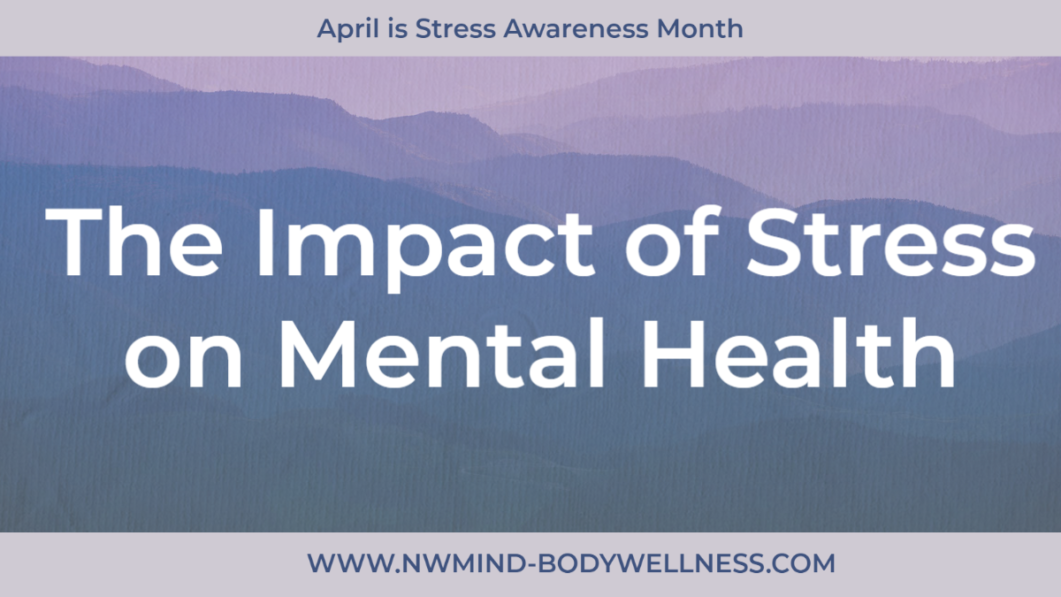The Impact of Stress on Mental Health
Prolonged stress can have devastating impacts on your mental health and overall wellbeing. Although stress itself is not an illness, it can make existing problems worse. In addition, it is believed that extended periods of stress can contribute to the development of some mental illnesses.
For Stress Awareness Month, the NW Mind-Body Wellness team would like to highlight various aspects of stress. This article is only one part of our series on stress this month, so check back for more soon.
If you are being faced with stressors and are having trouble managing, we encourage you to reach out to a healthcare provider. If you are looking for a healthcare provider, please fill out a contact form by clicking here. Our team is ready to help you break free from the stress of life!
What is Stress?
Before you can understand the impact of stress on mental health, it is important to understand what exactly stress is.
Stress is a natural response to pressure, changes, or other instances that might feel threatening. It is important to note that stress may also arise from positive things, such as a new job, getting married, etc. That being said, prolonged stress usually stems from negative experiences, such as financial hardship or loss of a loved one.
Stressors vary by person, and so does the intensity. But there is no “right” or “wrong” thing to be stressed over. Stress is unique to the individual.
The symptoms of stress may also vary by person. However, common symptoms of stress include mood swings, headaches, irritability, difficulty sleeping, and trouble concentrating.
What is the Impact of Stress on Mental Health?
To some degree, stress is a normal part of daily life. In small doses, some people find that stress can actually help motivate them in work, school, and more. In addition, stress can help provide a signal in dangerous situations that will help your body face danger or flee. The functions that stress causes your body to feel in these situations can help keep you safe.
As stress becomes a long-term state, it poses a threat to your mental health. One’s risk of mental and physical health problems increase as stress becomes overwhelming and prolonged. If continuous, the impact of stress on mental health may be very harmful. This is why managing your stress is essential.
How Can I Manage Stress?
We cannot avoid stress all together, but we can better manage our response to it. There are many ways that we can do this, and preferences will vary by person.
One way that you can manage stress is by managing your time. Prioritize the most important tasks or responsibilities you have. By highlighting what you must do, you may realize that there are other things you don’t need to worry about. This will also help you plan and better manage your time.
Accept your own needs. It can be easy to find yourself constantly saying “yes” to things you do not wish to do. If these things start to pile up, it can be very overwhelming. It is okay to recognize your own needs and give them priority. What you need matters.
We suggest using self care to help manage stress. There are many ways that you can practice self care. Self care is largely dependent on what benefits you personally. To learn ways that you can practice self care, we suggest our article “Tips for Self Care.”
There is no one best way to manage stress. We suggest trying different methods and seeing how they work for you. In addition, a healthcare provider can help assist you in finding the best way for you to manage the stressors you face.
RESOURCES
- To learn more about stress and how it may affect you, we recommend contacting your health care provider.
- To read more about stress, the following resources are suggested:
Return to the home page: https://nwmind-bodywellness.com/
